
CoreLogic®, a leading global property information, analytics and data-enabled solutions provider, today released its latest Single-Family Rent Index (SFRI), which analyzes single-family rent price changes nationally and across major metropolitan areas.
Single-family rental price increases dropped to 7.5% year over year in November, with all four tracked price tiers posting lower gains than a year earlier. November marked the seventh consecutive month of annual deceleration, and while Florida metro areas continued to post the nation’s highest rental cost gains, other Sun Belt cities such as Phoenix and Las Vegas that formerly showed the highest rent increases are now at the bottom. CoreLogic expects that rental price growth, along with home price appreciation, will continue to level off during the first part of 2023.
“An increase in single-family rental inventory is cooling price growth rapidly,” said Molly Boesel, principal economist at CoreLogic. “November’s annual U.S. rent growth was the slowest since May 2021 and two of the previously hottest markets — Phoenix and Las Vegas — posted the lowest gains among major metro areas. Looking forward, rent growth should continue to moderate and better balance market conditions.”
To gain a detailed view of single-family rental prices, CoreLogic examines four tiers of rental prices. National single-family rent growth across the four tiers, and the year-over-year changes, were as follows:
Of the 20 metro areas shown in Table 1, Orlando, Florida posted the highest year-over-year increase in single-family rents in November 2022, at 13.4%. Miami recorded the second-highest gain at 12.7%, while Boston ranked third at 11.5%. Phoenix saw the lowest annual rent price gain at 2.4%.
Differences in rent growth by property type emerged after COVID-19 took hold, as renters sought standalone properties in lower-density areas. This trend drove an uptick in rent growth for detached rentals in 2021, while the gains for attached rentals were more moderate. As single-family rent prices continued growing rapidly, preferences for attached rentals began to emerge in early 2022, and by summer, they had higher increases than detached properties. Attached single-family rental prices grew 8% year over year in November compared to the 6.5% increase for detached rentals.
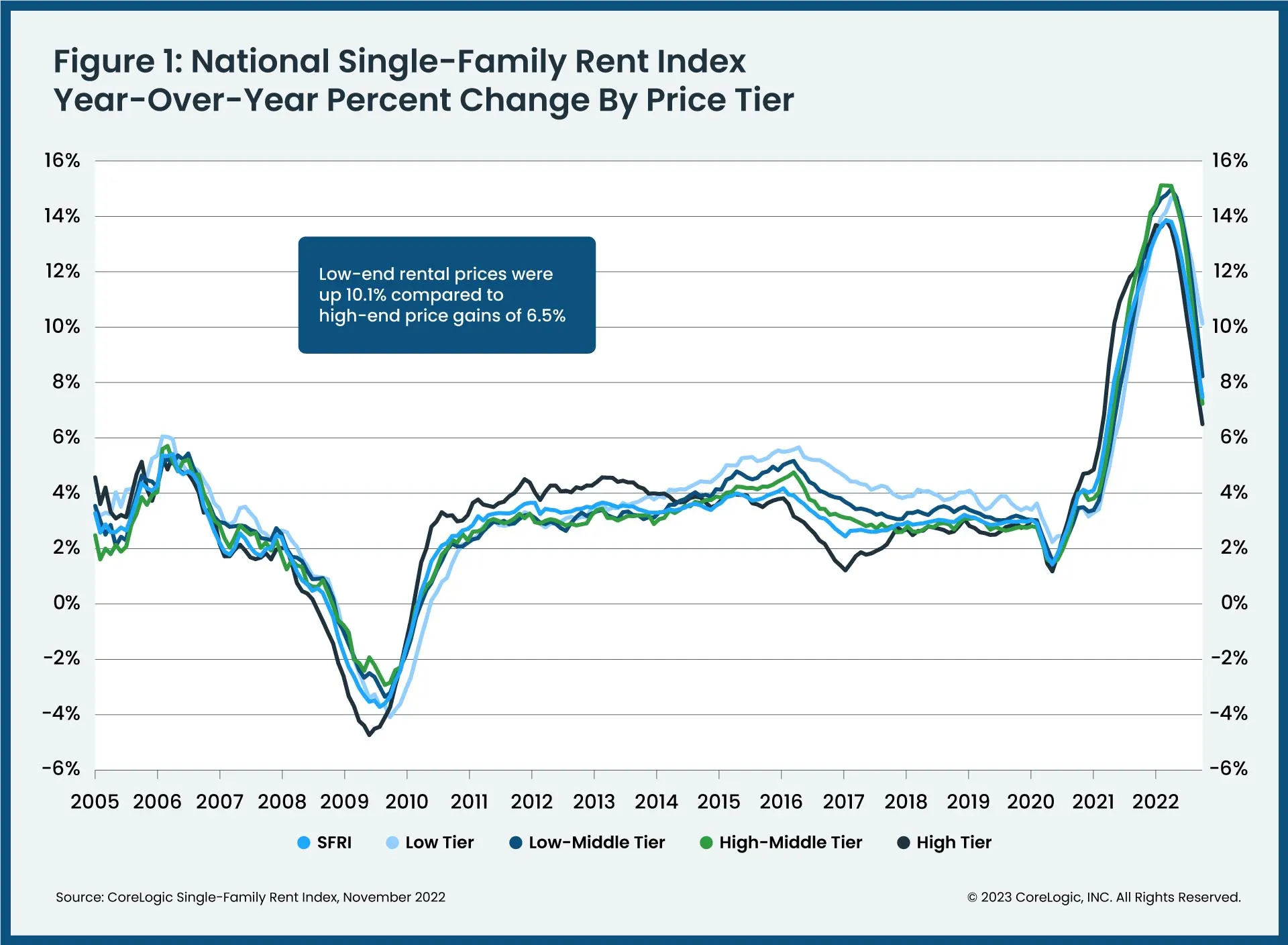
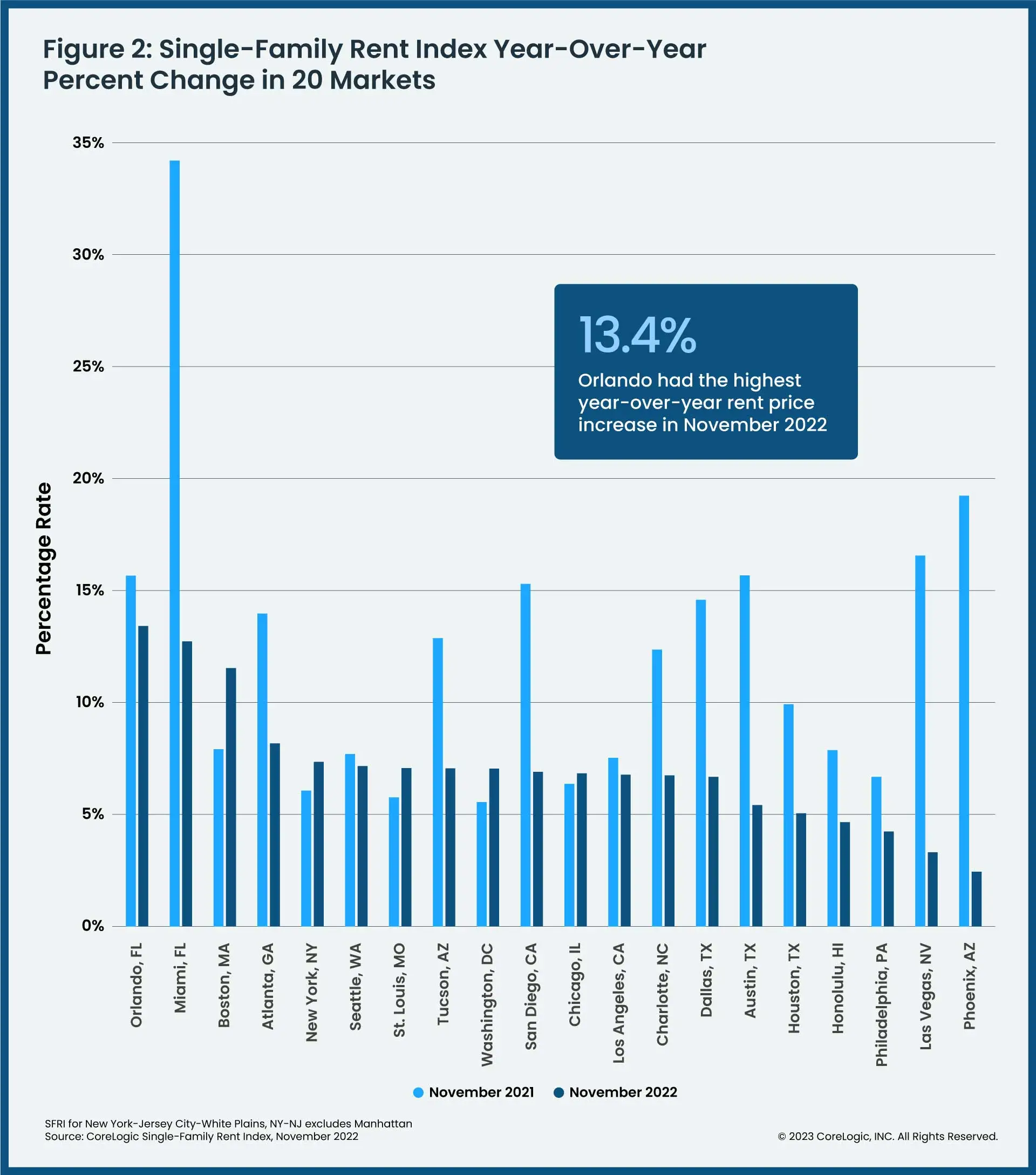
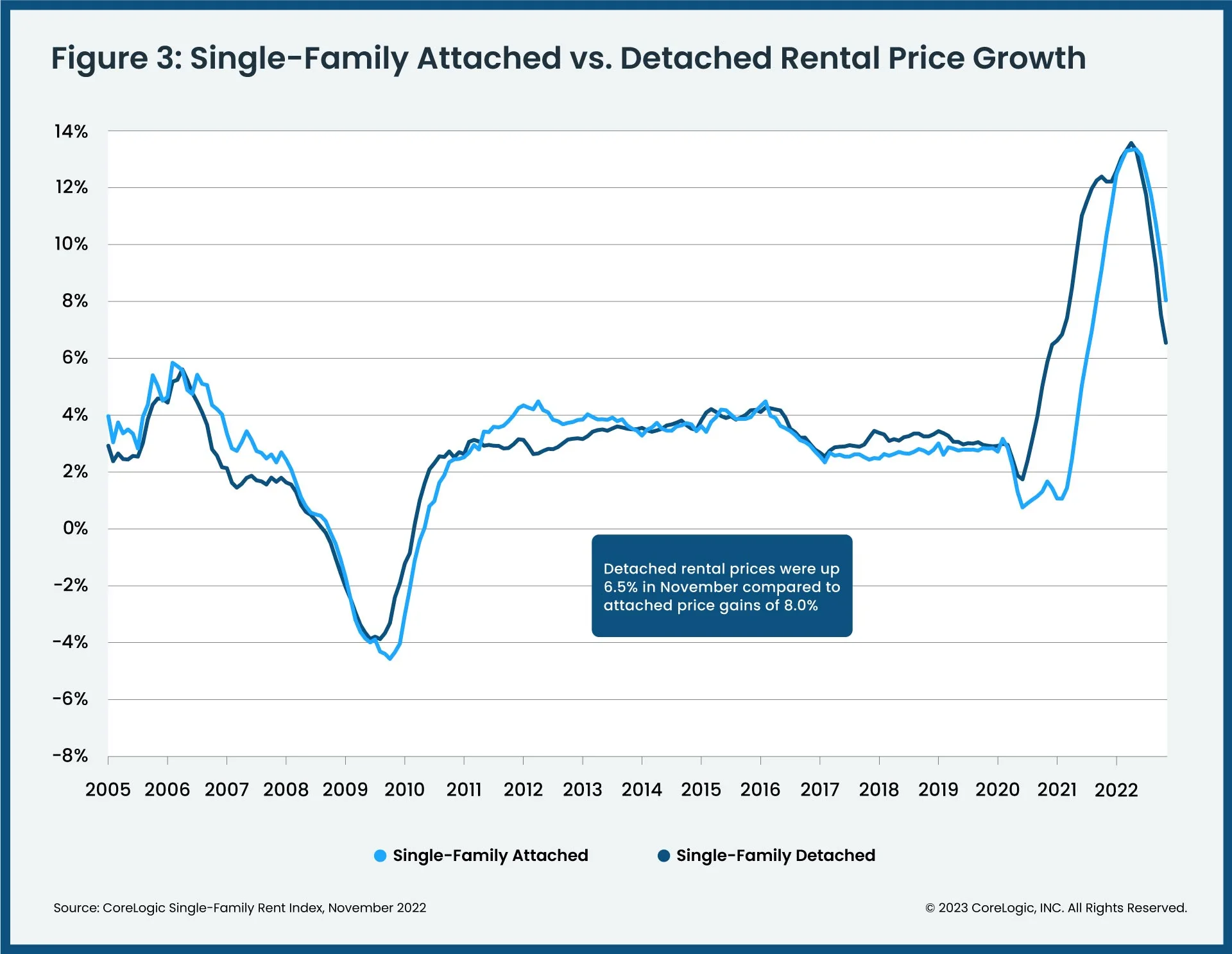
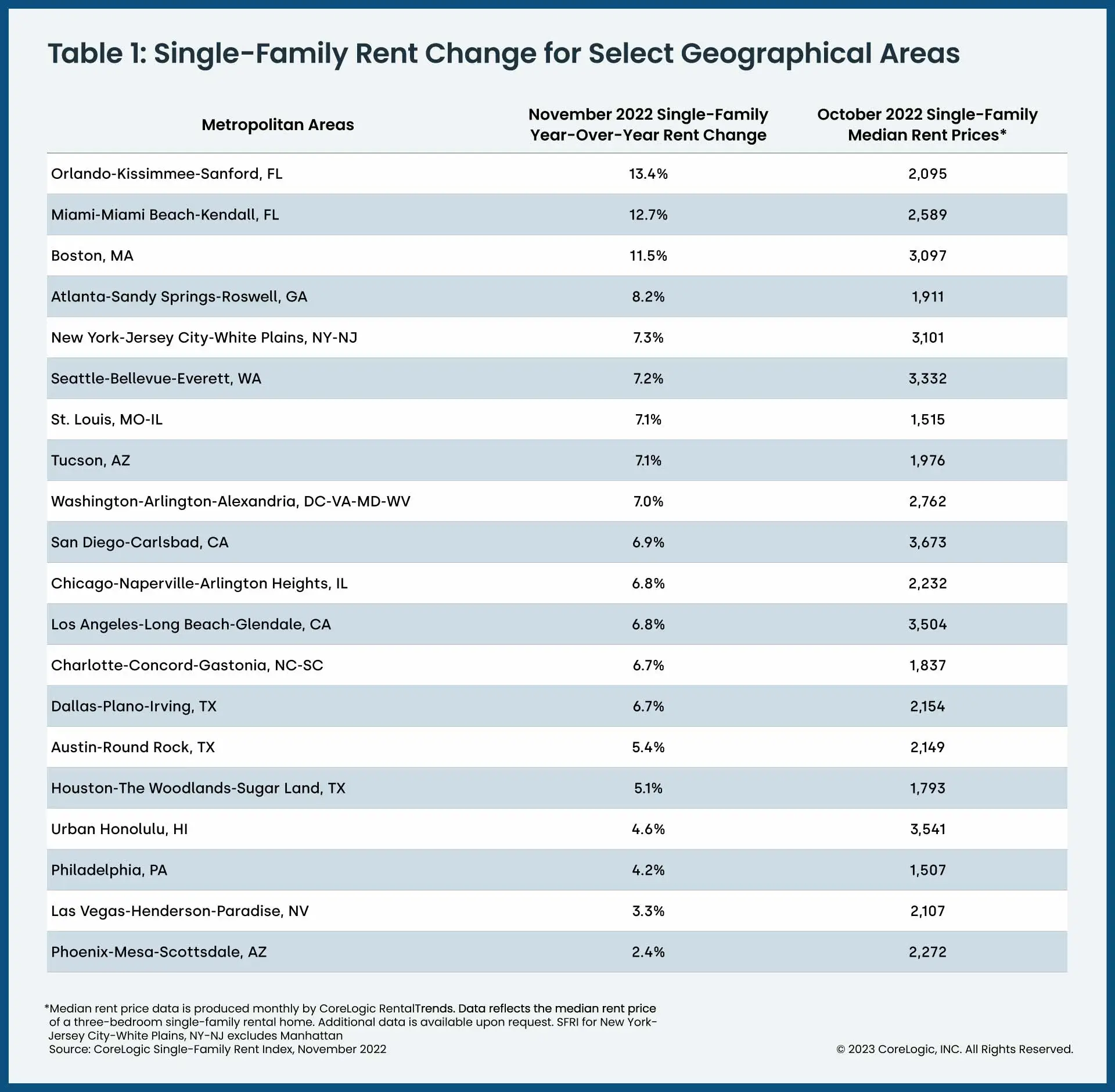
Methodology
The single-family rental market accounts for half of the rental housing stock, yet unlike the multifamily market, which has many different sources of rent data, there are minimal quality adjusted single-family rent transaction data. The CoreLogic Single-Family Rent Index (SFRI) serves to fill that void by applying a repeat pairing methodology to single-family rental listing data in the Multiple Listing Service. CoreLogic constructed the SFRI for close to 100 metropolitan areas — including 47 metros with four value tiers — and a national composite index. The indices are fully revised with each release to signal turning points sooner.
The CoreLogic Single-Family Rent Index analyzes data across four price tiers: Lower-priced, which represent rentals with prices 75% or below the regional median; lower-middle, 75% to 100% of the regional median; higher-middle, 100%-125% of the regional median; and higher-priced, 125% or more above the regional median.
Median rent price data is produced monthly by CoreLogic RentalTrends. RentalTrends is built on a database of more than 11 million rental properties (over 75% of all U.S. individual owned rental properties) and covers all 50 states and 17,500 ZIP codes.
To learn more about the data behind this article and what CoreLogic has to offer, visit https://www.corelogic.com/.







Sign up to receive our stories in your inbox.
Data is changing the speed of business. Investors, Corporations, and Governments are buying new, differentiated data to gain visibility make better decisions. Don't fall behind. Let us help.


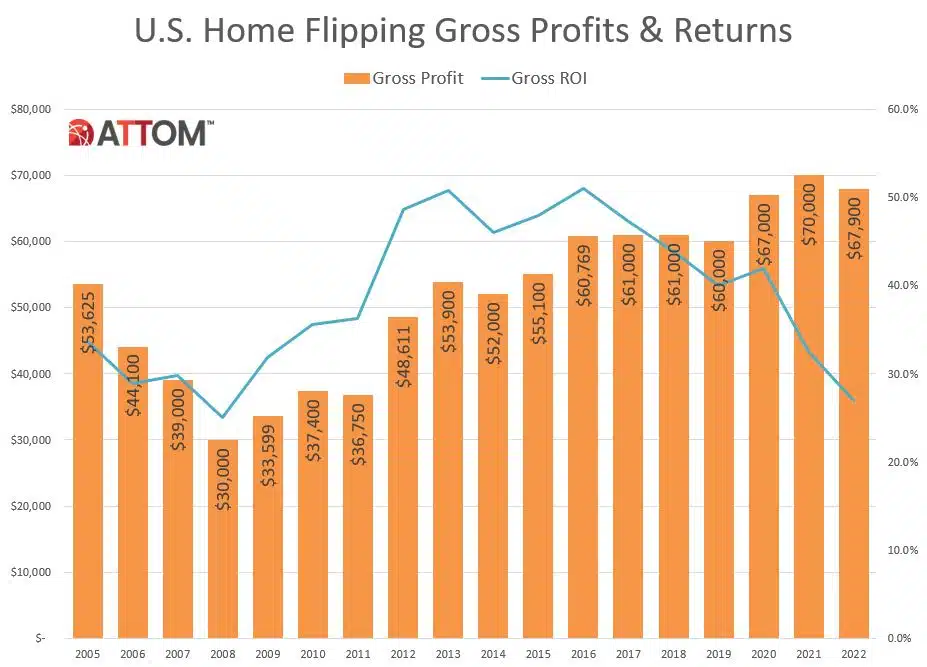


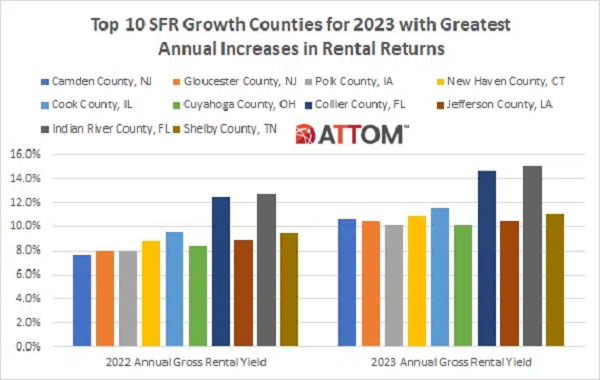







Sign up to receive our stories in your inbox.
Data is changing the speed of business. Investors, Corporations, and Governments are buying new, differentiated data to gain visibility make better decisions. Don't fall behind. Let us help.





